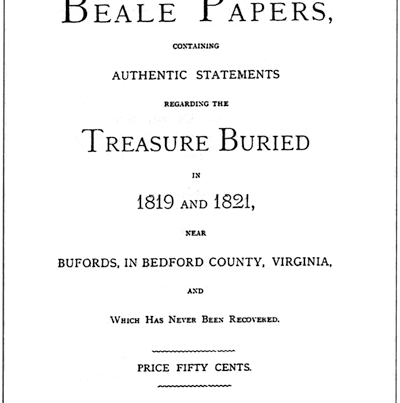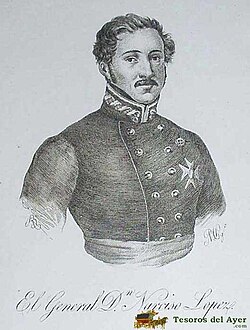In March, 2014, the Daily Show hosted by Jon Stewart had Judge Andrew Napolitano of Fox News “debate” three “distinguished” Lincoln “scholars” in a game show format called, “The Weakest Lincoln.”
The panel of scholars consisted of Lincoln apologist James Oaks, Manisha Sinha, whose works on American slavery and Southern history would make Charles Sumner blush for their for their overt anti-Southern bias and outright historical distortion (see “The Strange History of South Carolina”), and the noted communist and Lincoln lover Eric Foner, a man who has famously argued that Reconstruction did not go far enough, and who would probably have supported Benjamin Wade’s preference for hangings and property confiscation at the close of the War.
This was a classic ambush. Napolitano did not stand a chance, and the Leftist blogosphere danced on his grave, saying that Stewart’s panel “debunked” the “myths” emanating from Napolitano’s mouth and that Napolitano was “ripped apart.”
With such erudite analysis like, “Because they shot first, and you don’t mess with Lincoln,” coming from Oaks—who was obviously star-struck and happy to be one of the cool kids in his life (Hi, Mom! I’m on T.V.!)—it’s clear that they had a point. Profound.
But one assertion Napolitano made that drove the panel crazy. Napolitano insisted that Lincoln started the War because he “wanted to preserve the Union, because he needed the tariffs from the Southern states, [and because] he resented the challenge to his authority.”
Stewart pressed the panel on the tariff issue. Oaks replied, “No one was thinking about the tariff at that time…Let’s say this. They failed to mention it when they seceded from the Union.” Stewart then joked, “No one likes a good tariff,” to which Oaks rejoined, emphatically, “There was no tariff. Almost no tariff.” Sinha then said, “They raised it in 1861 after South Carolina seceded.”
This analysis is wrong on two fronts.
First, Oaks bumbled around the tariff issue saying, “They raised it a little bit in 1859,” but he knew nothing of the 1861 increase or the politics surrounding that increase. Perhaps he was nervous around popular people or, more likely, he didn’t know what he was talking about.
Sinha was correct that the Morrill Tariff was not signed into law until 1861, just days before James Buchanan left office and after seven States had seceded from the Union, but the political maneuvering on the issue began much earlier. The Morrill Tariff, in fact, had passed the House in 1860 and was brought to a vote in the Senate in 1861 precisely because Republicans knew it would pass after fourteen anti-tariff Southern Senators withdrew. Virtually all of the “yea” votes came from the Northeast and all were from Republicans.
This emphasizes the second incorrect statement Oaks made, namely that “No one was thinking about the tariff at the time.” Lincoln thought enough of it to mention it in his First Inaugural Address, and it was important enough that the Republican Party made it part of their platform in 1860. I guess they are nobody.
But what about Southerners?
The tariff was mentioned in both Georgia and South Carolina by prominent leaders in 1860 as an important factor in their determination to secede from the Union. It had been so for years. George Mason proposed a prohibition on “Navigation Laws” in Philadelphia in 1787 precisely because he thought the North would eventually tax the South out of existence. His prophecy had finally came to fruition in 1860. But neither he, nor any Southern leader in 1860, were anyone, I presume.
Additionally, on 1 May 1861, the Confederate Committee on Foreign Affairs produced a document designed to persuade foreign powers on the justness of the Confederate cause. The timing is important. This was only two weeks after the firing on Ft. Sumter and a shade under two months since Lincoln’s inauguration. The passage below was from the first full paragraph:
On the fiscal operations of the government in the laying and the expenditure of the taxes, they were previously not sufficiently united, completely to rule the South. The party weight of the South, and the ability and skill of its public men, kept them at bay; whilst the people of the North-West, being like the people of the South, an agricultural people, were generally opposed to the protective tariff policy — the grand sectionalising instrumentality of the North. They were allies of the South, to defeat this policy. Hence it has been only partially, and occasionally successful. To make it complete, and to render the North omnipotent to rule the South, the division in the North must be healed. To accomplish this object, and to sectionalise the North, the agitation concerning African slavery in the South was commenced. This institution was purely sectional, belonging to the South. Antagonism to it in the North must also be sectional. The agitation would unite the South against the North, as much as it united the North against the South; but the North being the stronger section, would gain power by the agitation. Accordingly, after the overthrow of the tariff of 1828, by the resistance of South Carolina in 1833, the agitation concerning the institution of African slavery in the South was immediately commenced in the Congress of the United States. It was taken up by the Legislatures of the Northern States; and upon one pretext or another in and out of Congress, it has been pursued from that day to the fall of 1860, when it ended in the election of a President and Vice President of the United States, by a purely sectional support. The great end was at last obtained, of a united North to rule the South. The first fruit the sectional despotism thus elected produced, was the tariff lately passed by the Congress of the United States. By this tariff the protective policy is renewed in its most odious and oppressive forms, and the agricultural States are made tributaries to the manufacturing States. It has revived the system of specific duties, by which, the cheaper an article becomes, from the progress of art or the superior skill of foreign manufacturers — the higher is the relative tax it imposes. Specific duties, is the expedient of high taxation, to enforce its collection. This tariff illustrates the oppressive policy of the North towards the South, and abounds in high taxation by specific duties. It is a war on the foreign commerce of the country, in which the Southern people are chiefly interested. Exclusively an agricultural people, it is their policy, to purchase the manufactured commodities they need, in the cheapest markets. These are amongst the nations of Europe, who consume five-sixths of the agricultural productions of the South. The late tariff passed by the Congress of the United States, was designed to force the Southern people, by prohibitory duties to consume the dearer manufactured commodities of the North, instead of the cheaper commodities of European nations. What is this but robbery? Does it not take from one citizen or section and give to another? The foreign trade of the United States, has always been carried on, by our agricultural productions. Our exports, are the basis of the imports, of the United States. Upon what principle of justice or of the Constitution, have the people of the North intervened between us and our natural customers, and forced us by the use of the Federal Government — laying prohibitory duties on the production of foreign nations — to consume their productions? Shall we not have the right to deal directly with those who consume our agricultural productions and who in return can supply us with their cheaper manufactured commodities. If foreign nations can sell us freelv their manufactured commodities, in consequence of their greater cheapness — can they not afford to give us more for our cotton? And if we pay less for their manufactured commodities— are we not so much the richer by the trade? The tariff alone, would have been ample cause for a separation of the Southern from the Northern. The reign of sectional oppression and tyranny, anticipated by the seceding States, is fully inaugurated at Washington, by the passage of this act [emphasis added].
But Dr. Oaks, no one was talking about the tariff, right?
The rest of the document is a fantastic summary of the causes of the War and is reprinted on our website at the Abbeville Review. One passage succinctly summarized the most important principle of the War: “The real issue involved in the relations between the North and the South of the American States, is the great principle of self-government. Shall a dominant party of the North rule the South, or shall the people of the South rule themselves.”
One must ask in 2014, with “friends” like Stewart, Oaks, Foner, and Sinha, what Southerner needs enemies? Better yet, what Southerner would want to be in a Union with them?








dang.